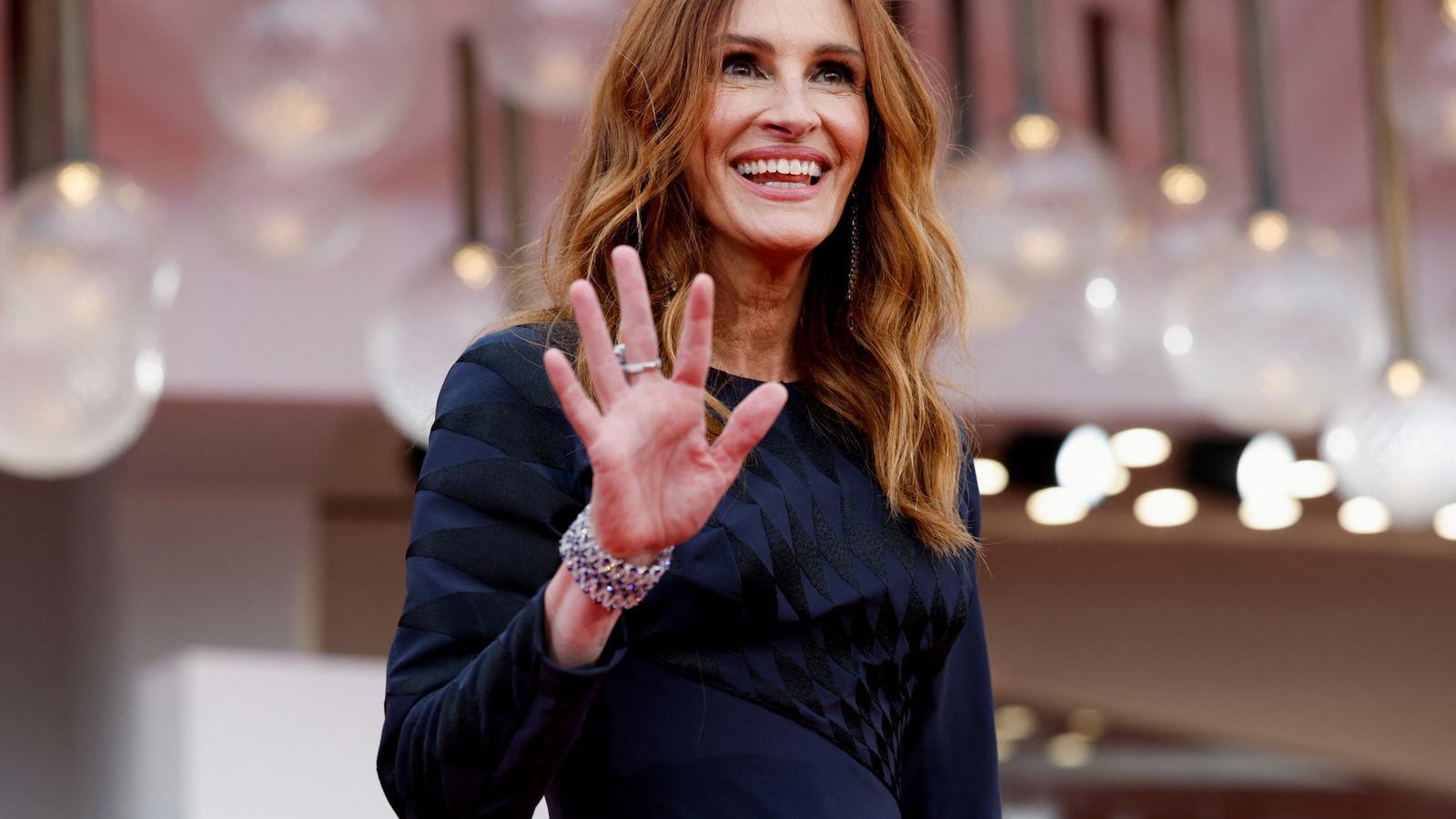Julia Roberts opens the #MeToo debate in Venice
Luca Guadagnino's film 'After the Hunt' examines a fictional case of sexual assault at Yale University.

VeniceIt seems impossible to believe, but this Friday Julia Roberts visited the Venice Film Festival for the first time. The 57-year-old actress, a true icon of Hollywood cinema, winner of an Oscar for Erin Brockovich, has stepped onto the red carpet at the Mostra for the first time thanks to his participation in the film After the hunt, directed by Italian Luca Guadagnino and presented out of competition at Venice. In the film, Roberts plays Alma Imhoff, a Yale University professor whose ethical convictions and emotional ties are compromised when she discovers that her best friend and closest confidant (Andrew Garfield) may have sexually assaulted his favorite student, an African-American and Latinx girl. the series The bear.
"With this film, we're asking people to engage in the debate. Whether that excites them or angers them is up to them," Roberts explained at the film's press conference. And there's no question that After the hunt, which will be released in Catalan theaters on October 17 with the title Witch hunt, puts its finger on the sore spot of many of the discussions that mark the contemporary social agenda, from #MeToo to cancel culture, from demands for the restitution of ethnic minorities in the United States to the fight for the rights of the LGBTI community.
According to Roberts, After the hunt "does not attempt to impose a discourse, but rather limits itself to showing a set of lives at a specific time and opening a discussion." A task that the new film by the director of Call me by your name (2017) She takes on the issue with determination, but also with an omnivorous voracity, in the sense that there is no hot topic that escapes the pen of actress and writer Nora Garrett, who debuts as a screenwriter combining a good hand for witty retorts and a penchant for totum revolutum.
"When I read the script, I heard that the script was establishing a dialogue with me about a question that has been on my mind for a long time: the idea of power," Guadagnino explained to the press: "What do we want when we seek power? Why do we want it? Why do we fight to have it in our hands and so on?" All these questions run through a film that makes the secrets hidden from the characters its narrative raison d'être. The mystery—which appears to be distributed among the opposing versions of those involved in the sexual incident, and in the health and past of Roberts' character—is fueled by Guadagnino with healthy doses of Hitchcockian suspense. The pity is that Garrett's script ends up leaning towards the distribution of rewards and punishments, to the detriment of the reflective power of uncertainties.
And suddenly, Woody Allen
In the Darsena Room, the setting for the Mostra's press screenings, there was a moment of collective disbelief when, after a brief prologue, After the hunt It has opened with identical credits to Woody Allen's films, which for decades premiered at the Italian festival. Why Guadagnino's suspicious nod to the New York filmmaker? "When we started thinking about this film with my team of collaborators, from director of photography Malik Hassan Sayeed to art designer Stefano Baisi, our minds went to... Crimes and misdemeanors, Another woman or even Hannah and her sisters. There was an infrastructure in the history of the film that seemed to us intimately linked to the great works that Woody Allen made between 1985 and 1991."
It must be said that, beyond the credits –white letters on a black background–, it is possible to find the legacy of Woody Allen in the intimate portrait of the Yankee bourgeoisie. However, it seems evident that the link between After the hunt and Allen's figure transcends the purely cinephile sphere. "I felt it was also interesting to make a reference to an artist who, in a certain sense, has faced problems related to his person," admits the director of Queer (2024). "And I also wanted to allude to our responsibility when looking at the work of an artist we love, like Woody Allen."
As a true cinephile, Guadagnino doesn't limit himself to quoting Hitchcock and Allen, but also takes advantage of After the hunt to remember Pedro Almodóvar, when in a particularly dramatic scene the poster of The flower of my secret It is outlined on the floor of one of the rooms in Alma's house. This is the collection of fads of a European director who has managed to find his place in the competitive jungle of American cinema.
